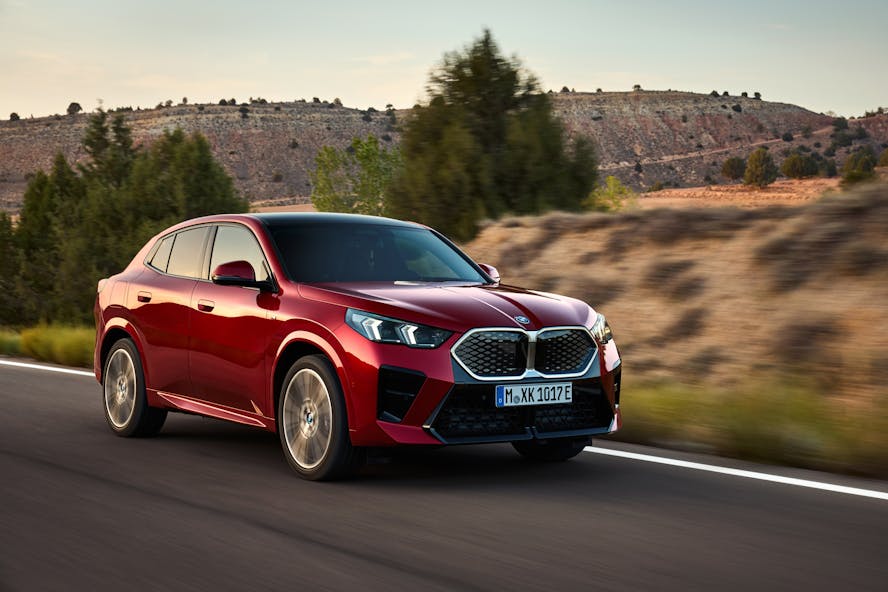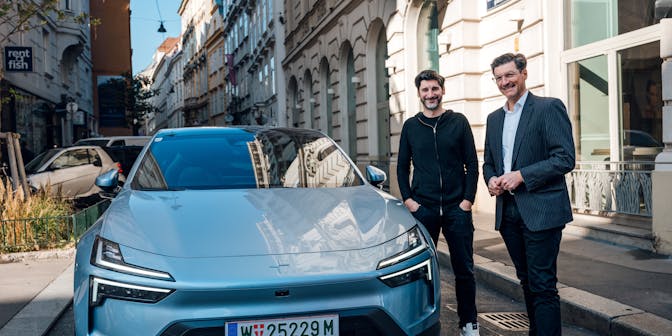What does EV Salary Sacrifice mean in 2024?
Discover what is EV salary sacrifice in 2024. Learn about tax benefits, salary sacrifice scheme details, and advantages for both employees and employers.
Key Highlights:
-
EV salary sacrifice schemes reduce taxable income, lowering both National Insurance contributions and income tax for employees.
-
Employees can lease a wide range of electric vehicles through the scheme, including popular models like Teslas, BMWs, and Audis.
-
Businesses benefit from reduced National Insurance contributions and can attract talent with competitive EV schemes.
-
The 2024 Spring Statement maintained favourable Benefit-in-Kind (BIK) rates for EVs and introduced enhanced capital allowances for EV charging infrastructure.
As we move further into 2024, the EV salary sacrifice scheme is still a popular choice for businesses looking to reduce their carbon footprint. To help you understand what it’s all about, we’ll unpack the concept of EV salary sacrifice, explore how it works, and examine the recent changes brought about by the 2024 Spring Statement. Whether you're an employer looking to enhance your green credentials or an employee considering the switch to an electric vehicle, this guide will tell you all you need to know.
What is salary sacrifice?
So, what does salary sacrifice mean? Salary sacrifice schemes aren’t new, they’ve been around for decades. But they’ve become an increasingly popular employee perk over the last 10 years or so.
Salary sacrifice schemes are offered by employers and supported by the UK government. Employees agree to sacrifice a part of their salary in exchange for non-cash benefits, such as pension contributions, childcare vouchers or payment of a company car lease.
For example, an employee might sacrifice 5% of their salary with that 5% paid into a pension fund by their employer instead. Because sacrifices are deducted from an employee’s gross salary before tax is paid, salary sacrifice schemes can lower taxable income. This cuts the tax bill for both the employee and their employer, particularly due to lower National Insurance contributions.
What is an EV salary sacrifice scheme?
With an electric vehicle salary sacrifice scheme, an employee volunteers to sacrifice part of their salary in exchange for their employer covering monthly payments on an electric vehicle car lease. The employer leases the electric vehicle on behalf of their employee, and deducts the monthly cost of it from the employee’s salary.
EV salary sacrifice schemes allow organisations to help their employees make the switch to driving electric in a hassle-free manner. Encouraging employees to drive electric cars can also help your organisation achieve sustainability goals, such as Net Zero targets.
How would an EV salary sacrifice scheme benefit employees?
-
Reduced National Insurance contributions: As salary deductions are made pre-tax, the employee is effectively being paid less which can mean they’ll pay lower National Insurance contributions. This means they keep more of what they earn.
-
Lower income tax: With deductions made from gross salary, employees may also pay less income tax.
-
Access to an electric vehicle: With excellent lease rates from DriveElectric, employees can get behind the wheel of an electric car in a cost-effective way.
-
Further cost savings: With lower fuel and maintenance costs, electric vehicles can save your employees money on top of the tax benefits.
-
Wide choice of electric vehicles: We offer your employees a fantastic choice of electric vehicles, including cars and vans. We lease Teslas, Mercedes, Audis, BMWs, and more, meaning they can get behind the wheel of a car they want to own.
How would an EV salary sacrifice scheme benefit employers?
-
Reduced National Insurance: By reducing employees’ gross salaries, an employer may have to make lower National Insurance Contributions for those employees.
-
Motivated employees: EV salary sacrifice schemes can save employees money whilst ensuring they can drive the car they really want to, which can be seen as a valuable employee perk.
-
Successfully attract talent: Offering an EV salary sacrifice option as part of remuneration can be seen as a competitive benefit that can help with recruitment.

How did the 2024 Spring Budget affect EV salary sacrifice schemes?
The UK government is actively encouraging the transition to electric vehicles as part of its broader strategy to reduce carbon emissions. The 2024 Spring Statement introduced several key changes that affect salary sacrifice schemes for EVs, including:
- Changes in Benefit-in-Kind (BIK) rates
The Benefit-in-Kind tax rates – which determine the taxable value of a company car provided to an employee – have been a significant factor in the attractiveness of EV salary sacrifice schemes.The 2024 Spring Budget maintained the favourable BIK rates for electric vehicles, ensuring that they remain a tax-efficient option. The BIK rate for EVs is set at 2% for 2024, far lower than the 30% for petrol cars. And whilst this 2% is set to rise a percentage point each year over the next three, even at 5% this is much lower than for non-electric vehicles.
- Enhanced employer incentives
To further incentivise employers to adopt EV cars and salary sacrifice schemes, the government has introduced additional tax relief for businesses. Employers can now claim enhanced capital allowances on EV charging infrastructure spending, reducing the overall cost of investing in EV charging points. See the government’s Workplace Charging Scheme (WCS) for more details.
- National Insurance contributions reductions
As of the 1st of April 2024, Class 1 National Insurance Contribution (NIC) for employees between the Annual Threshold and Upper Earnings Limit will decrease from 10% to 8%.
Whereas employees used to pay 10% NIC on earnings between £12,570 and £50,268 (and 2% on earnings above that), they’ll now pay only 8%. This should further reduce how much National Insurance employees pay with an EV salary sacrifice scheme, although those savings won’t be too extensive.
How much could I save with an EV salary sacrifice scheme?
How much an employee will personally save in National Insurance and Income Tax reductions will depend on that employee’s personal situation. Factors including the size of their gross salary and how much of their salary they sacrifice each month are key.
If you’re interested in an EV salary sacrifice scheme, you can find electric car salary sacrifice calculators online. Add your gross salary and an estimated salary sacrifice, and the EV salary sacrifice calculator will give you an idea of how much you can save.
Note, this estimated saving will be just tax reductions, and won’t include savings made by driving an electric vehicle rather than a petrol or diesel one.
How does DriveElectric’s EV salary sacrifice scheme work?
Our DriveElectric EV salary sacrifice scheme is simple and flexible, and is designed to work for both employees and employers. It works like this:
- Get in touch with us to tell us about your organisation and its needs. We’ll put together a tailor-made salary sacrifice scheme for your business.
- Your employees can use our dedicated portal to choose their preferred electric car and lease agreement. We offer a wide range of electric vehicles, including SUVs and vans, Teslas, BMWs, Audis and more.
- We’ll then assign a monthly leasing cost to each employee taking part in the scheme.
- We’ll even set the payroll up for you if required. We’ll deduct the monthly sacrifice from each employee’s pre-tax salary and will adjust their PAYE and NI contributions.
Go electric with DriveElectric
If you’re interested in introducing an employee EV salary sacrifice scheme for your organisation get in contact with us. Simply fill out an enquiry form and one of our friendly team of experts will take you through the next steps.
More EV guides
Understanding Vehicle Excise Duty (VED) or "Road Tax" for EVs

How to save money on a new car with Salary Sacrifice
How is salary sacrifice calculated?
